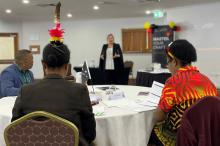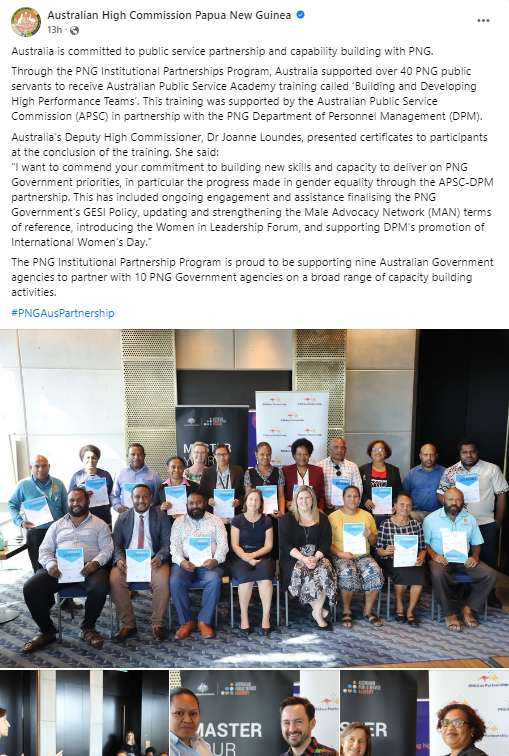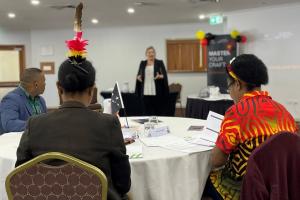By Adam Le Nevez, APS Academy

In August and September, the APS Academy partnered with colleagues in the APSC’s International branch to deliver a pilot learning experience to over 40 Papua New Guinean Public Servants.
The APSC supports counterparts in Asia and the Pacific to strengthen their public sector institutions through a number of initiatives including the Papua New Guinean Institutional Partnerships Program. After several years where face-to-face training has not been possible, we delivered a learning experience based on two Academy courses: ‘Building and Leading High-Performing Teams’ and ‘Coaching and Developing Others’ to managers in several PNG ministries.
We worked with Natalie Dawes, one of the Academy’s most experienced facilitators, to adapt our existing courses for a Papua New Guinean audience and to find opportunities to make the learning ‘sticky’. Delivering the two courses to the same cohort a month apart gave participants the opportunity to apply their learning in the workplace and then to reflect on their experience with their peers. In the second session, these skills were reinforced and deepened. Working as a cohort meant participants were able to forge professional links with each other, provide feedback and learn from the learning experience of their peers. It was a great example of continuous learning in action.
So, what was the outcome? For participants it was strongly positive. 100% found the learning engaging and worthwhile, particularly the aspects that gave them practical skills for shifting away from an autocratic managerial mindset. All had started to apply their learning in the workplace.
'I only hope that my other colleagues could also benefit from this. This training will change the 'norm' in PNG public service' said one. 'My staff have more respect towards me. Staff attendance is greatly improved and the level of motivation is high', reported another. 'Officers feel more challenged and feel at ease to ask for assistance.'
For Natalie, the chance to follow up with participants across two months was insightful. 'Every single one of these local public service leaders had gone back to their office and taken action based on what they had learned. They stepped out of their comfort zones and tried something different. And they were already seeing the positive results these changes were having on their teams.'

Support for the pilot on social media.




